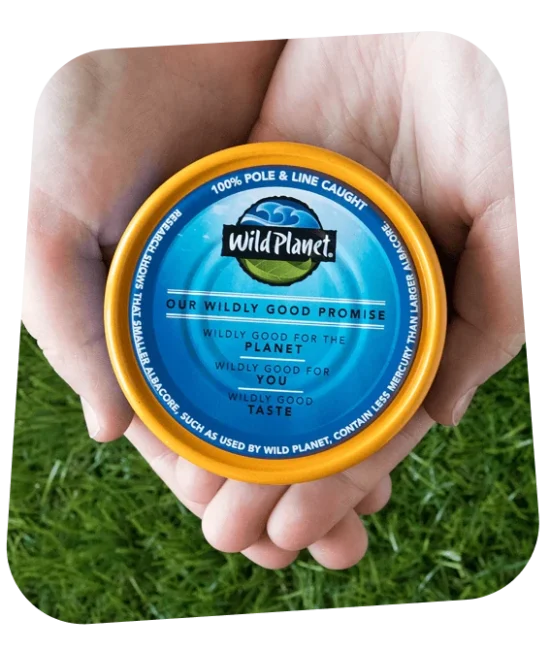Devising a New Retail Media Strategy to Increase Sales Upstream


Challenger brand Wild Planet was a small fish ready for the big pond. And while the canned seafood company wasn’t quite yet a household name like its competitors, it had some serious big fish energy.
Wild Planet built its brand on a commitment to environmental sustainability. Every fish is selectively harvested and in the case of tuna, each one is sustainably pole & line caught. Nets are never used to catch their tuna. This technique significantly reduces bycatch – the unintended capture of other sea life. Further, each of its 5-ounce cans of tuna contains full tuna steak that is hand-cut and hand-packed and then complemented with a touch of sea salt before being once-cooked in its own juices for unparalleled taste and nutrition.
These selling points also drove a higher relative price point in its category. This meant Wild Planet needed to find a way to convey its important brand purpose and justify its relative cost compared to competitors.
Wild Planet sought Tinuiti’s help in stealing market share from its big-name competitors, investing in retail media networks to drive sales, and attracting new-to-brand customers with a refined positioning strategy.
I went from a resource-constrained eCommerce Director to an eCommerce Director with real resources overnight. Tinuiti stepped in as a partner on day one, they got what we were trying to do, and we were instantly collaborating with us to reach our goals. We were able to stand up media campaigns across nearly a dozen new platforms in less than a month’s time. Fast forward to end of year results, and Tinuiti exceeded every KPI benchmark we had set!
Max Rudy
Director of Ecommerce, Wild Planet
new-to-brand sales across all channels (Amazon, WFMOA, Walmart, Instacart)
increased attr. sales at Whole Foods Market on Amazon
total sales on Amazon (despite 40% reduction in ad spend)
Tinuiti started by differentiating Wild Planet as a great-tasting, sustainable, premium product that has a value system aligned with its target consumer.
We timed the campaign to kick off right before Lent, a religious season in which observers don’t eat meat (but will eat fish) on certain days. The campaign would run across six retail marketplaces and the retailer-agnostic platform, Instacart.
We employed responsive ecommerce on Amazon, custom static display ads with Whole Foods Market on Amazon, and video ads on Instacart to amplify awareness. The creative highlighted Wild Planet’s sustainability, exceptional taste, and other differentiators.
This unique combination of retail channels with thoughtful creative resonated with the audience – hook, line, and sinker. Overall, Wild Planet saw a 46% increase in new-to-brand sales across all channels, with Amazon sales increasing by 41% year-over-year (despite a 40% decrease in ad spend) and sales at Whole Foods on Amazon up 622% in attributed revenue.
On Instacart, Wild Planet was the only tuna brand to gain market share in its category, stealing 4.9 points of share, increasing sales by 20%, and driving a 44% increase in new-to-brand customers. Kroger’s digital sales increased by 69% and Walmart’s by 8%.
With $7.4 million in total attributed sales, Wild Planet made its way upstream into the big pond in which it was always meant to swim.


